
Siwa Oasis: Egypt's Hidden Gem in the Desert
Located in the heart of the Western Desert, Siwa Oasis is a lush, green paradise surrounded by golden sand dunes. This remote and tranquil oasis is a world apart from the bustling cities of Egypt, offering visitors a unique blend of natural beauty, ancient history, and rich culture. Siwa is famous for its stunning landscapes, including palm groves, olive orchards, and crystal-clear springs. The Great Sand Sea, with its towering dunes, provides a dramatic backdrop for adventure seekers who can enjoy activities like sandboarding and 4x4 desert safaris. The oasis is also home to the beautiful salt lakes of Birket Siwa and Birket Zeitun, where the high salt content allows you to float effortlessly. History enthusiasts will be captivated by the ancient ruins of the Temple of the Oracle, where Alexander the Great is said to have sought guidance. The Shali Fortress, built from kershef (a mixture of mud and salt), stands as a testament to the area's unique architectural traditions. Siwa is also known for its traditional crafts, and visitors can purchase handmade jewelry, textiles, and pottery as souvenirs. Despite its remote location, Siwa offers a warm welcome to travelers. The local Berber community is known for their hospitality and will make you feel at home. Traditional Siwan cuisine, featuring dishes like tagine and couscous, offers a delicious taste of local flavors. Whether you're exploring ancient ruins, lounging by a spring, or stargazing in the desert, Siwa Oasis promises an unforgettable experience.
Local tips in Siwa Oasis
- Visit in the cooler months (October to April) to avoid the extreme summer heat.
- Rent a bike to explore the oasis and its surroundings at your own pace.
- Carry cash, as ATMs are limited and credit card facilities are rare.
- Respect local customs and dress modestly, especially when visiting religious sites.
- Try the local dates and olives, which are some of the best in Egypt.
Siwa Oasis: Egypt's Hidden Gem in the Desert
Located in the heart of the Western Desert, Siwa Oasis is a lush, green paradise surrounded by golden sand dunes. This remote and tranquil oasis is a world apart from the bustling cities of Egypt, offering visitors a unique blend of natural beauty, ancient history, and rich culture. Siwa is famous for its stunning landscapes, including palm groves, olive orchards, and crystal-clear springs. The Great Sand Sea, with its towering dunes, provides a dramatic backdrop for adventure seekers who can enjoy activities like sandboarding and 4x4 desert safaris. The oasis is also home to the beautiful salt lakes of Birket Siwa and Birket Zeitun, where the high salt content allows you to float effortlessly. History enthusiasts will be captivated by the ancient ruins of the Temple of the Oracle, where Alexander the Great is said to have sought guidance. The Shali Fortress, built from kershef (a mixture of mud and salt), stands as a testament to the area's unique architectural traditions. Siwa is also known for its traditional crafts, and visitors can purchase handmade jewelry, textiles, and pottery as souvenirs. Despite its remote location, Siwa offers a warm welcome to travelers. The local Berber community is known for their hospitality and will make you feel at home. Traditional Siwan cuisine, featuring dishes like tagine and couscous, offers a delicious taste of local flavors. Whether you're exploring ancient ruins, lounging by a spring, or stargazing in the desert, Siwa Oasis promises an unforgettable experience.
When is the best time to go to Siwa Oasis?
Iconic landmarks you can’t miss
Shali Fortress
Discover the ancient ruins of Shali Fortress in Siwa Oasis, a testament to Berber ingenuity and a window into Egypt's Western Desert history.
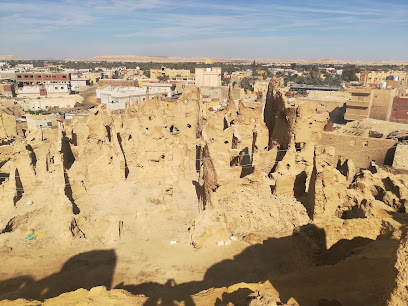
Fatnas Island
Experience Siwa's magical sunsets at Fatnas Island, a tranquil oasis escape with palm-fringed shores and serene lake views.
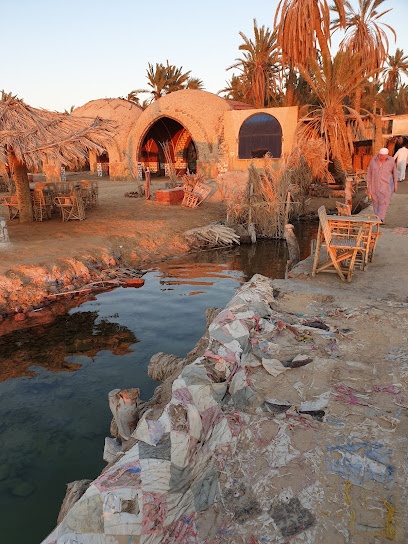
Cleopatra Spring
Bathe in history at Siwa's Cleopatra Spring, a legendary oasis where the Egyptian queen may have once rejuvenated herself.
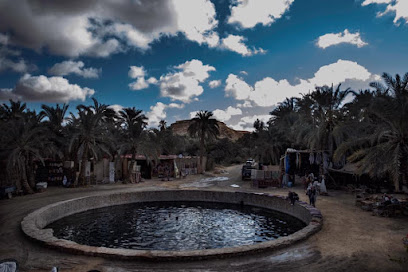
Amon Temple
Explore the ruins of the Amon Temple in Siwa Oasis, where Alexander the Great sought divine confirmation and ancient mysteries linger.
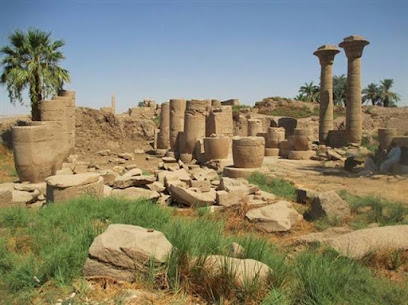
al-Mawta mountain
Explore ancient tombs and panoramic views atop Siwa's al-Mawta Mountain, a historical necropolis dating back to the 26th Dynasty.
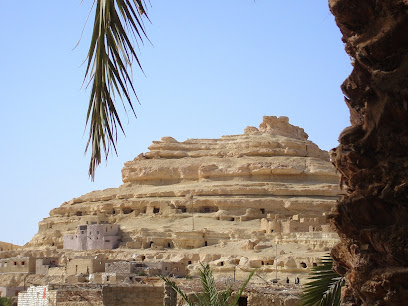
Bir Wahed Sulphuric Hot Spring
Experience the magic of Bir Wahed: a natural hot spring in the Sahara Desert offering relaxation and stunning sunset views.
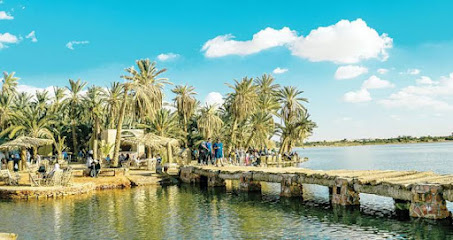
Gabal Dakrur
Hike Gabal Dakrur for breathtaking panoramic views of Siwa Oasis, ancient history, and a taste of local culture.
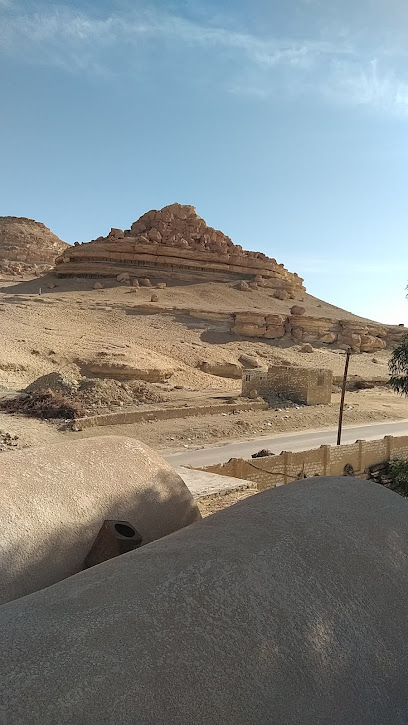
The Traditional Siwa House
Discover Siwa's rich heritage at The Traditional Siwa House: Experience the unique culture and traditions of this enchanting desert oasis.
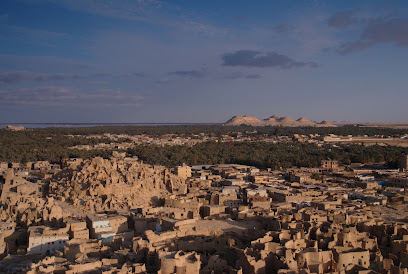
hayaat siwa hot spring
Experience relaxation and stargazing at Hayaat Siwa Hot Spring, a unique desert oasis with therapeutic warm waters and stunning natural beauty.
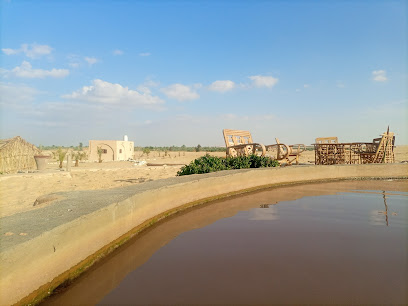
Temple of Umm Ubayd
Explore the Temple of Umm Ubayd in Siwa Oasis, a historical landmark with ancient ruins and intricate carvings dedicated to the god Amun.
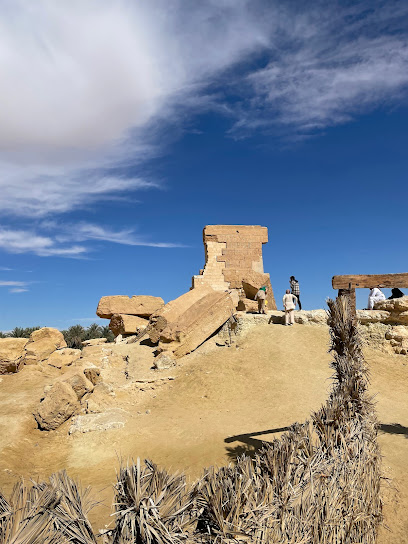
Gebel al-Mawta
Explore ancient tombs and panoramic views at Gebel al-Mawta, Siwa's historic Mountain of the Dead, dating back to the 26th Dynasty.
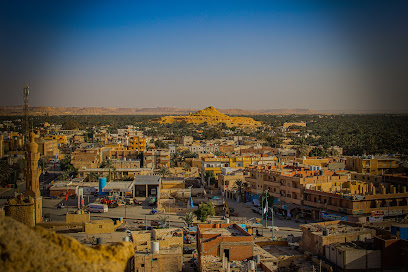
واحة سيوة مزارات لها تاريخ
Discover the enchanting Siwa Oasis, an extraordinary blend of stunning landscapes, rich culture, and ancient history in Egypt's Western Desert.
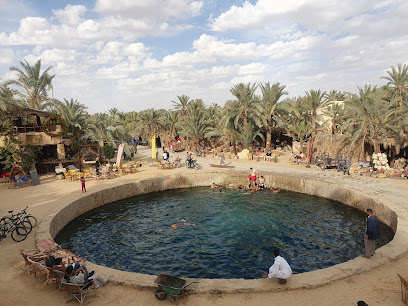
Manshia Mosque
Discover the spiritual heart of Siwa at Manshia Mosque, a beautiful testament to local culture and Islamic tradition.
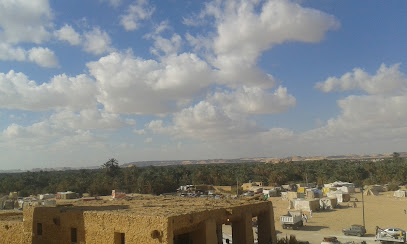
Sand mosque
Discover the spiritual heart of Siwa at the Sand Mosque, where traditional architecture meets the serene beauty of the Egyptian desert oasis.
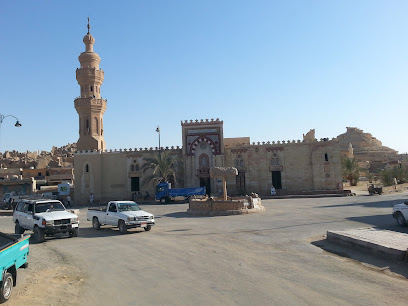
واحة سيوة Siwa Oasis
Discover Siwa Oasis: A serene desert escape with ancient ruins, therapeutic salt lakes, and unique Berber culture in Egypt's Western Desert.
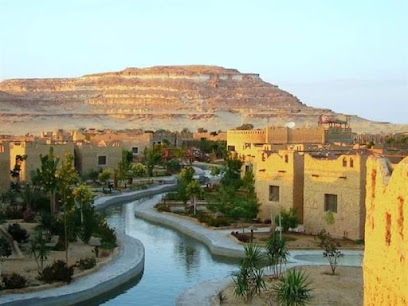
Unmissable attractions to see
al-Mawta mountain
Discover Al-Mawta Mountain, a historical site in Siwa Oasis where ancient tombs meet breathtaking desert landscapes, perfect for history enthusiasts and nature lovers alike.
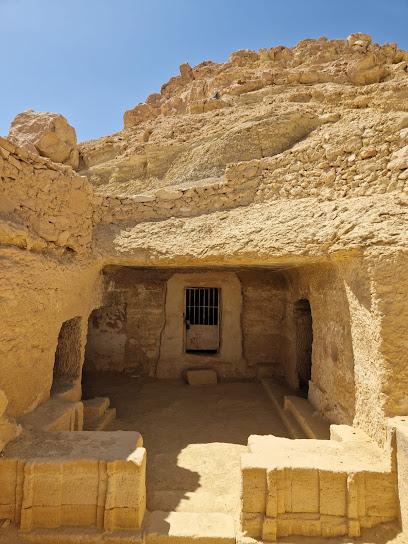
Salt Lakes
Experience the tranquil beauty of Siwa's Salt Lakes, a natural spa retreat in Egypt's stunning desert landscapes, perfect for relaxation and rejuvenation.
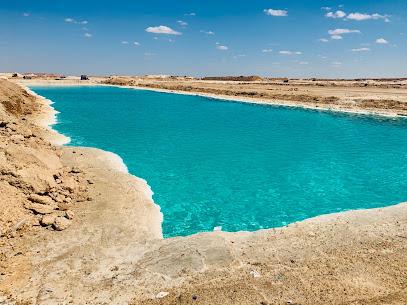
Gabal Dakrur
Discover the breathtaking beauty and rich cultural heritage at Gabal Dakrur, the majestic mountain near Siwa Oasis in Egypt.
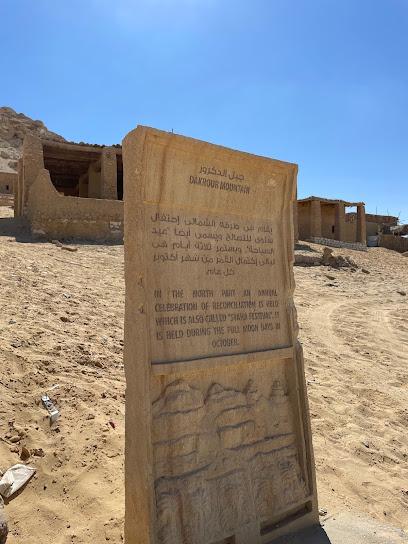
Siwa Lake
Discover the serene beauty of Siwa Lake, a hidden gem in the Siwa Oasis, where nature and culture blend harmoniously in an unforgettable experience.
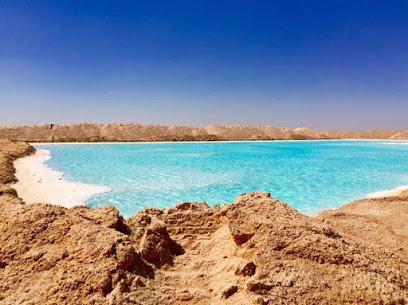
Salt Lakes
Discover the enchanting Salt Lakes of Siwa, where turquoise waters meet the serene desert, offering a unique escape and therapeutic experience.
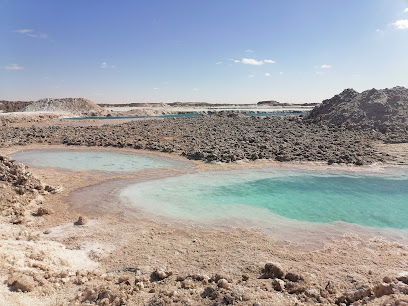
The Traditional Siwa House
Discover the rich heritage and unique lifestyle of Siwa at The Traditional Siwa House, a captivating museum in Egypt's enchanting oasis.
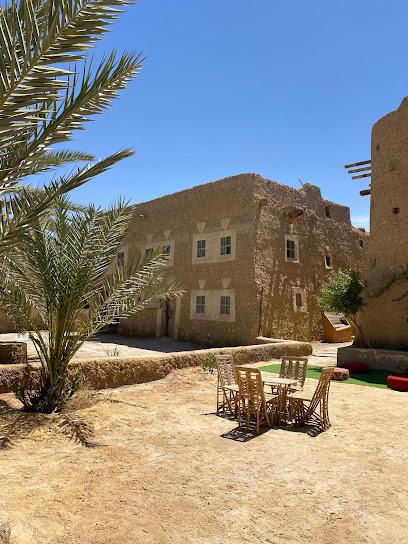
The Traditional Siwa House
Explore the rich heritage of Siwa Oasis at The Traditional Siwa House, a captivating museum showcasing the unique culture and traditions of the Siwi people.
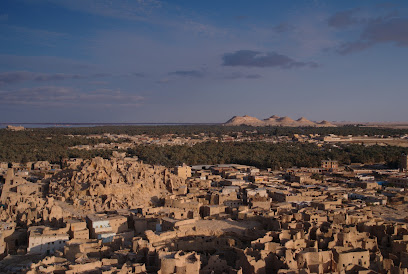
الملاحات سيوة
Explore Siwa Oasis, a serene desert retreat in Egypt known for its stunning landscapes, ancient ruins, and rich cultural experiences.
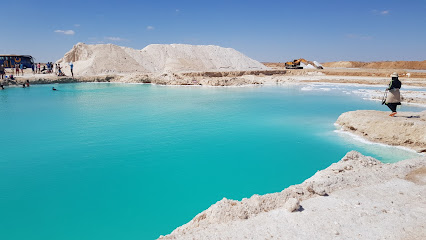
واحة سيوة مزارات لها تاريخ
Explore Siwa Oasis - a mesmerizing blend of natural beauty, rich history, and vibrant culture in the heart of the Egyptian desert.
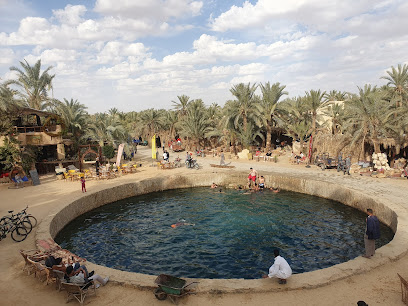
Cleopatra's Pool
Experience the serene beauty and healing waters of Cleopatra's Pool in Siwa Oasis, a historical gem in the heart of Egypt's western desert.
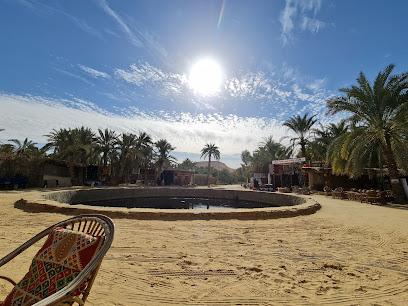
واحة سيوة Siwa Oasis
Explore the captivating beauty and rich history of Siwa Oasis, a hidden gem in Egypt's Western Desert, where adventure and culture await.
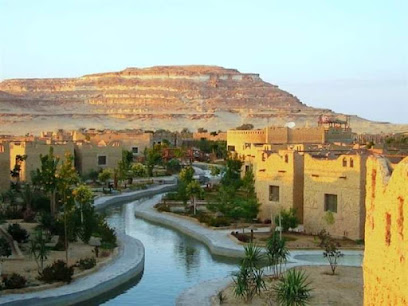
جبل شالي
Explore Shali Mountain in Siwa, a hiker's dream with stunning views, rich culture, and unforgettable experiences amidst Egypt's natural beauty.
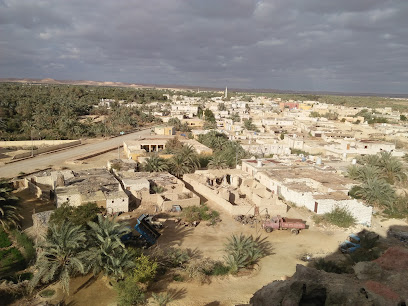
Sand boarding
Unleash your adventurous spirit with sandboarding in the stunning Egyptian desert, a thrilling experience for every traveler in Marsa Matrouh.
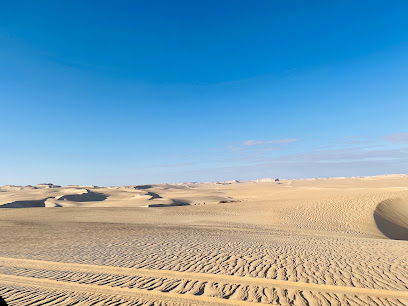
Sobek Park
Explore the tranquility of Sobek Park, a wildlife refuge in Siwa offering stunning views of salt lakes and diverse wildlife, perfect for nature enthusiasts.
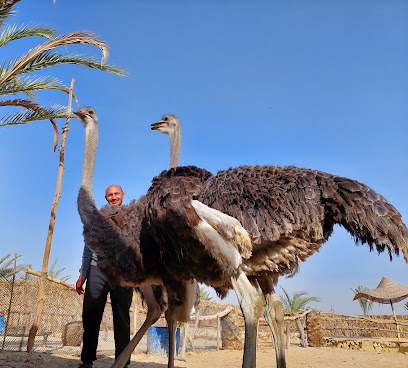
عين العرايس
Experience the enchanting Siwa Oasis, a unique blend of natural beauty and cultural history in the heart of Egypt's Western Desert.
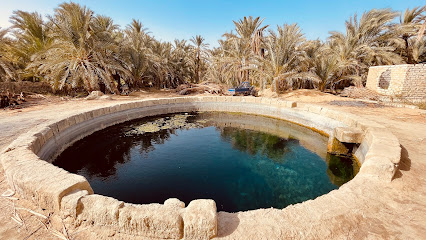
Essential places to dine
Abdu Resturant
Discover authentic Egyptian falafel at Abdu Restaurant in Siwa - where every bite tells a story.
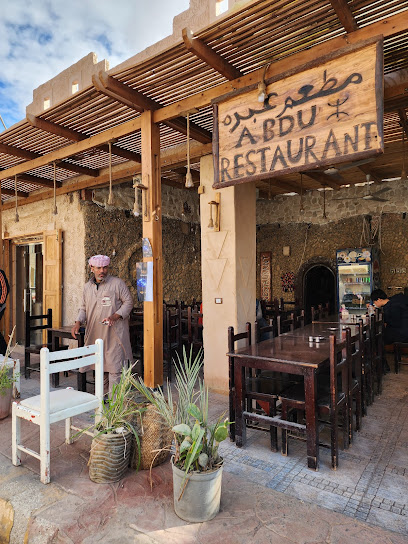
مطعم علي عليوة للمشويات
Savor authentic Egyptian barbecue at مطعم علي عليوة للمشويات in Siwa – where tradition meets flavor in every bite.
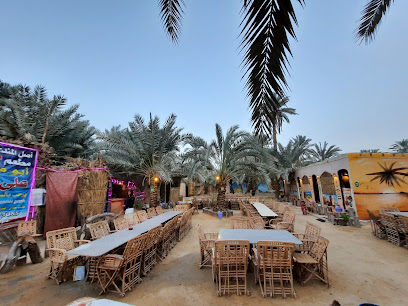
OLA restaurant مطعم عُلا
Experience authentic Egyptian cuisine at OLA Restaurant in Siwa - a culinary haven amidst stunning desert landscapes.
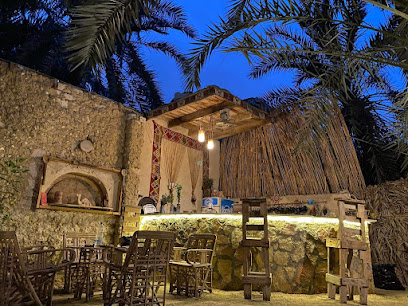
Taziry Ecovillages Siwa
Experience sustainable luxury at Taziry Ecovillages Siwa—where nature meets culture in Egypt's stunning oasis.
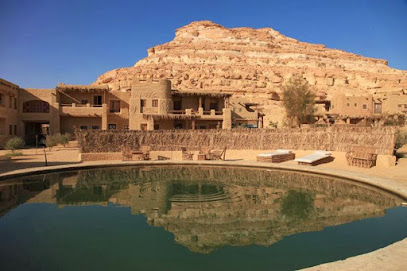
Tekeyet Elamir Restaurant & Café
Discover authentic Egyptian cuisine at Tekeyet Elamir Restaurant & Café in Siwa – where flavors meet tradition in a warm atmosphere.
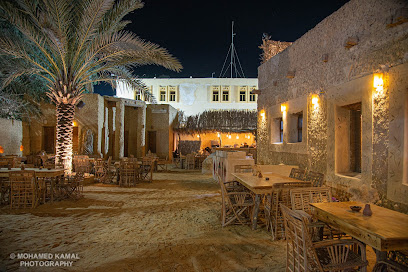
مطعم وفندق نور الواحه . سيوه
Experience authentic Egyptian cuisine and warm hospitality at مطعم وفندق نور الواحه in Siwa's beautiful oasis.
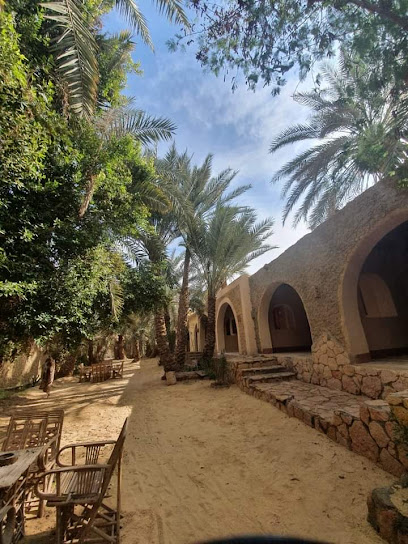
Fahmi's Garden
Discover the tranquil charm of Fahmi's Garden in Siwa - where delicious cuisine meets serene surroundings.
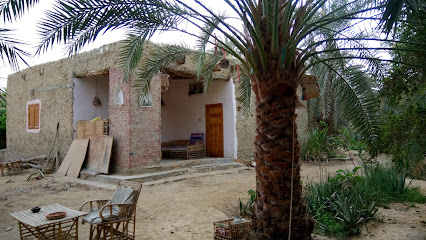
hayaat siwa hot spring
Experience rejuvenation at Hayaat Siwa Hot Spring – a serene oasis blending natural beauty with luxurious comfort.
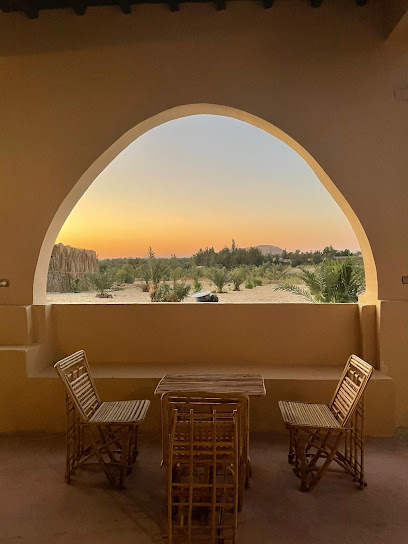
Ana Maria cafe & restaurante
Discover the vibrant flavors of Brazil at Ana Maria Cafe & Restaurante in Siwa, where every meal is a cultural celebration.
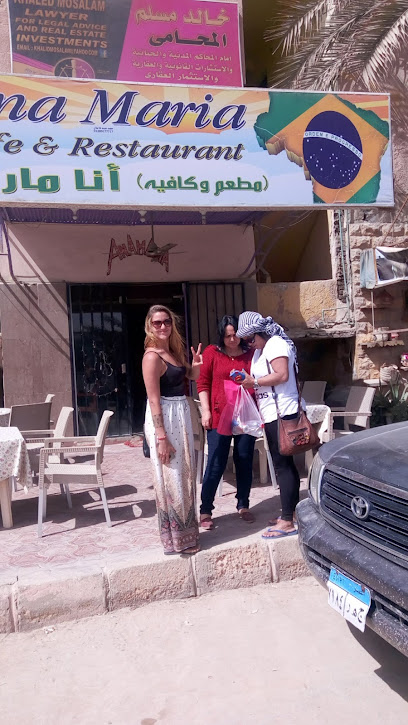
Koshary KARIM
Discover authentic Egyptian cuisine at Koshary KARIM in Siwa - home to the best koshary and warm hospitality.
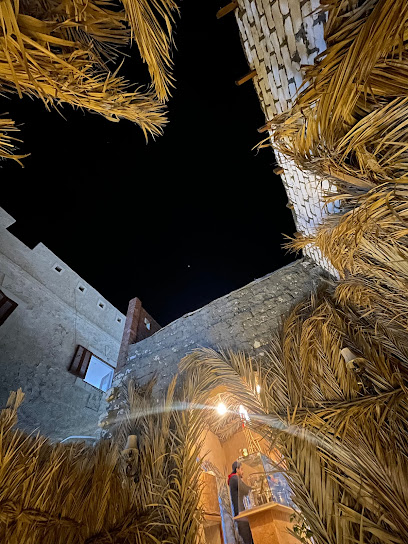
Muhra
Experience authentic Egyptian cuisine at Muhra in Siwa, where every dish tells a story of tradition and flavor amidst stunning natural beauty.
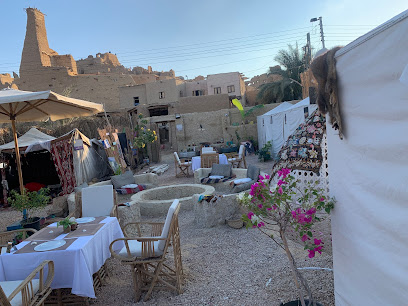
مطعم أبو أيمن Abu Ayman Restaurant
Savor traditional Egyptian dishes in the heart of Siwa at Abu Ayman Restaurant - where flavor meets culture.
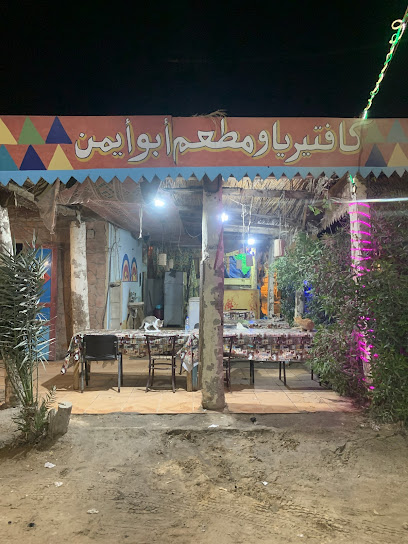
Forest Camp Siwa - الغابة كامب
Discover tranquility at Forest Camp Siwa – where nature meets comfort in Egypt's stunning oasis.

New Star Siwa
Experience authentic Egyptian cuisine at New Star Siwa, where every dish tells a story and hospitality reigns supreme.
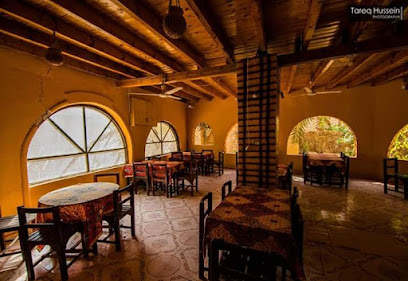
مطعم و كافيتيريا سهر الليالي
Discover authentic Japanese izakaya cuisine at مطعم و كافيتيريا سهر الليالي in Siwa - A unique culinary experience amidst Egypt's stunning landscapes.
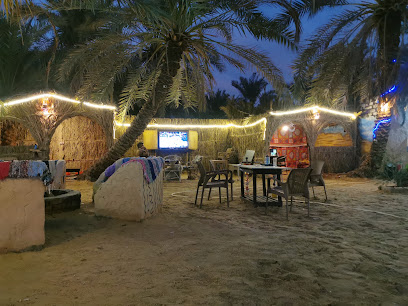
Markets, malls and hidden boutiques
Siwa shali store
Experience the vibrant culture and unique crafts of Siwa at the enchanting Siwa Shali Store, a treasure trove of local art and tradition.
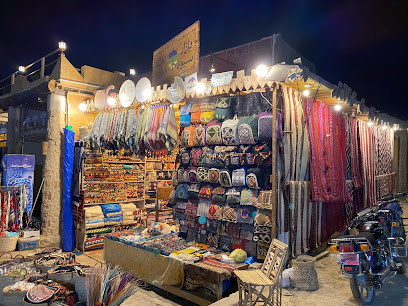
Smart Siwa
Discover Smart Siwa: Your ultimate destination for shopping, business needs, and local treasures in the heart of Siwa.
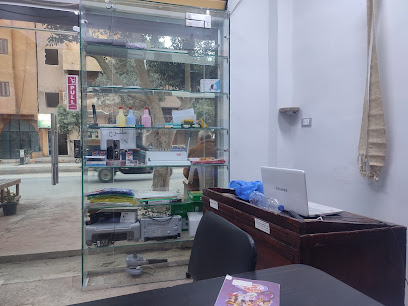
Alexander Siwa (Gift Shop)
Explore the vibrant craftsmanship of Siwa at Alexander Siwa Gift Shop, where unique handicrafts and local artistry await every traveler.
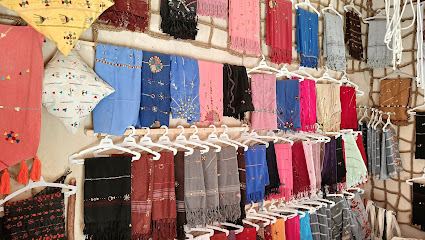
سوبر ماركت شامه
Discover local flavors and essentials at سوبر ماركت شامه, your go-to grocery store in Siwa, Marsa Matrouh Governorate, Egypt.

وطيجن لمنتجات سيوة وليبيا
Experience the charm of local culture at وطيجن لمنتجات سيوة وليبيا, a vibrant shopping mall in Siwa featuring authentic crafts and local delicacies.

Siw-E-Mart
Explore local flavors at Siw-E-Mart, the heart of grocery shopping in Siwa, where fresh produce meets authentic regional specialties.
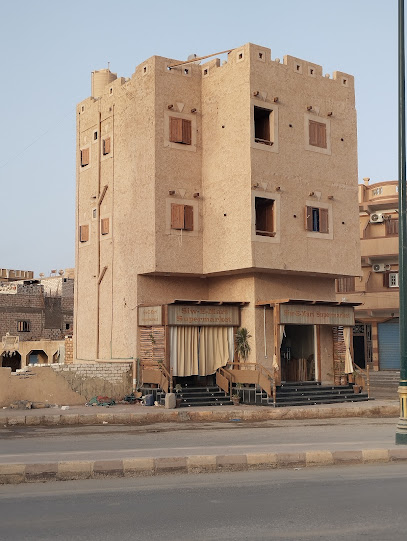
محل النجمه الذهبيه للادوات المنزليه
Explore the heart of Siwa at the Golden Star Home Goods Store, where local craftsmanship meets unique home essentials.
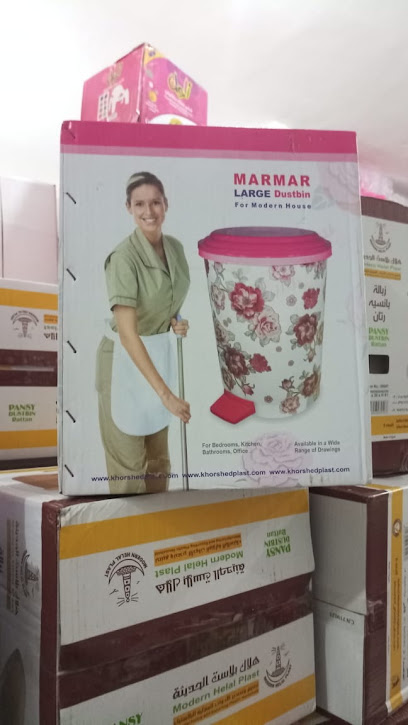
Sahara ADVENTURE SHOP
Discover unique local crafts and souvenirs at Sahara Adventure Shop in Siwa, where the spirit of the Sahara Desert comes alive through art and culture.
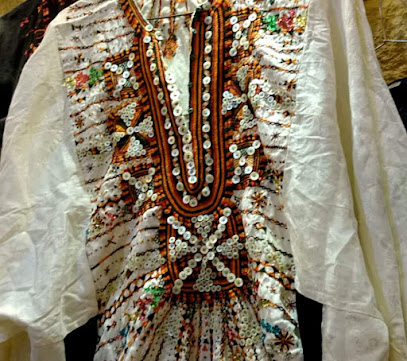
Tiltawein jewlery and handicrafts Store
Explore the unique artistry of Siwa at Tiltawein Jewelry and Handicrafts Store, where every piece tells a story of cultural heritage.
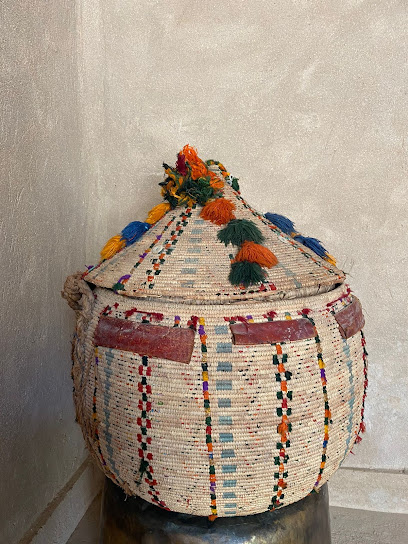
Mokhtar dates and natural products - مختار للمنتجات الطبيعية و التمور
Explore the authentic taste of Siwa at Mokhtar Dates and Natural Products, where local flavors and natural products come together.
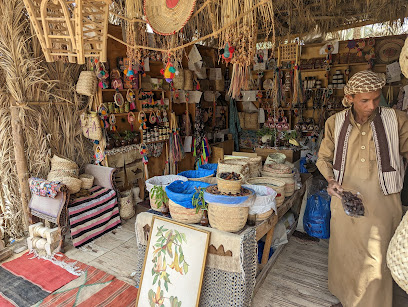
محمصة جاجال 2
Explore the vibrant Mahmasat Jajal 2 shopping mall in Siwa, where local culture and unique crafts come together for an unforgettable experience.

Siwa traditional hand craft
Explore Siwa's vibrant bazaar, showcasing traditional handcrafts that reflect the rich cultural heritage of Egypt's Berber community.
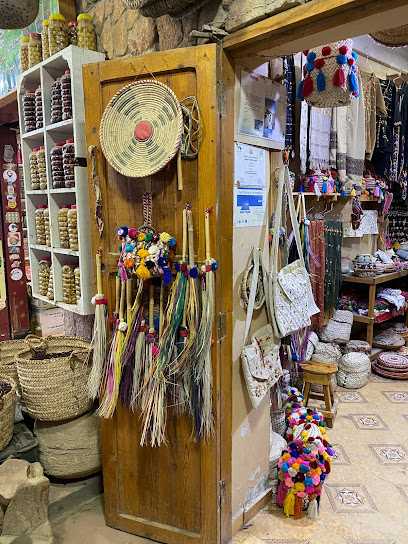
Aboelinin mobil shop/ابو العنين لخدمات المحمول
Explore Siwa with confidence from Aboelinin Mobil Shop, your trusted source for mobile phones and accessories in the heart of the oasis.
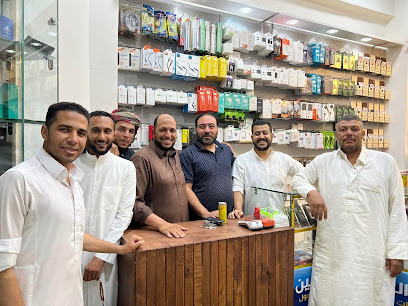
تم الاغلاق
Experience Siwa's rich culture through its smart shop, offering unique local products and handcrafted souvenirs for discerning travelers.

معرض الجزيرة للملابس
Explore the rich cultural heritage of Siwa at الجزيرة للملابس, where traditional Egyptian clothing meets warm local hospitality.
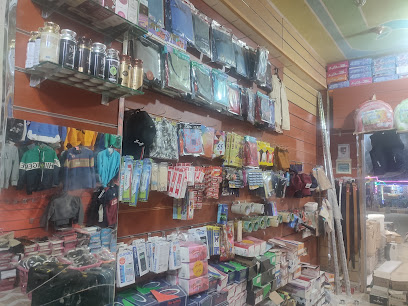
Essential bars & hidden hideouts
Abdu Resturant
Discover the authentic flavors of Egypt at Abdu Restaurant, a must-visit falafel haven in the enchanting oasis of Siwa.
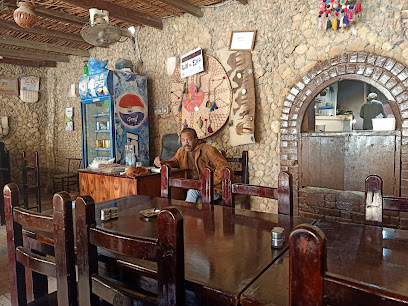
مطعم علي عليوة للمشويات
Discover the vibrant flavors of Egyptian barbecue at مطعم علي عليوة للمشويات, a culinary gem in the heart of Siwa Oasis.
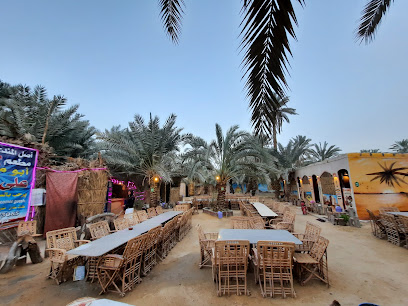
OLA restaurant مطعم عُلا
Experience authentic Egyptian cuisine at OLA Restaurant in Siwa, where traditional flavors meet a warm, inviting atmosphere.
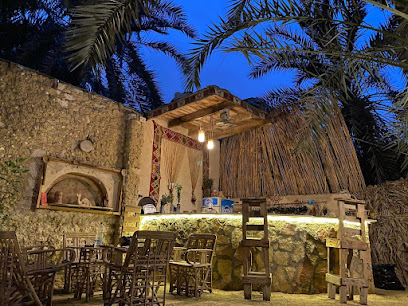
مطعم وفندق نور الواحه . سيوه
Discover the charm of Siwa Oasis at مطعم وفندق نور الواحه, where exquisite dining meets traditional Egyptian hospitality.
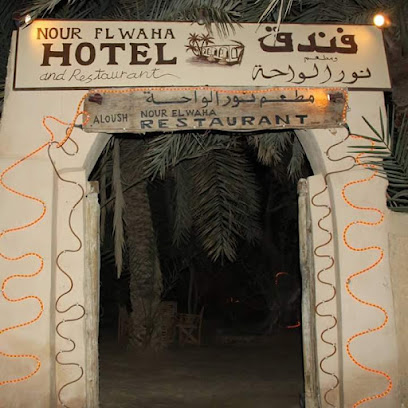
Fahmi's Garden
Discover the tranquil beauty of Fahmi's Garden, a delightful restaurant and hostel in Siwa, blending authentic cuisine with serene surroundings.
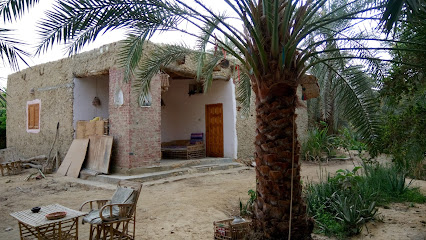
Ana Maria cafe & restaurante
Experience the vibrant flavors of Brazil at Ana Maria Cafe & Restaurante in Siwa, an oasis of taste amid desert beauty.
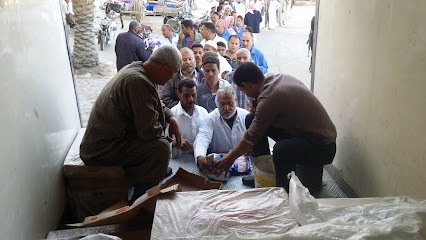
Muhra
Experience the authentic flavors of Siwa at Muhra, a charming restaurant offering traditional Egyptian cuisine in a cozy atmosphere.
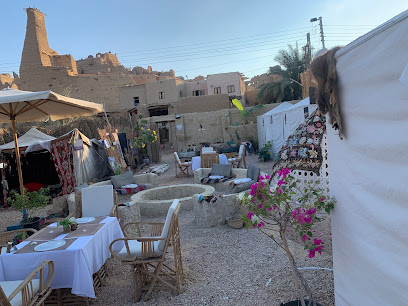
New Star Siwa
Discover the authentic flavors of Egypt at New Star Siwa, where culinary tradition meets warm hospitality in a charming setting.
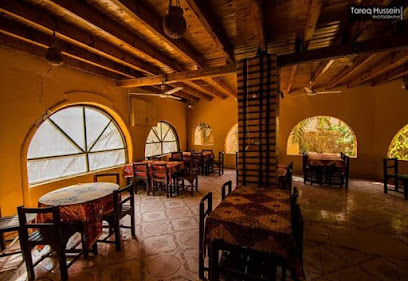
مطعم و كافيتيريا سهر الليالي
Savor authentic Japanese izakaya flavors at مطعم و كافيتيريا سهر الليالي in Siwa, where culinary tradition meets a warm, inviting atmosphere.
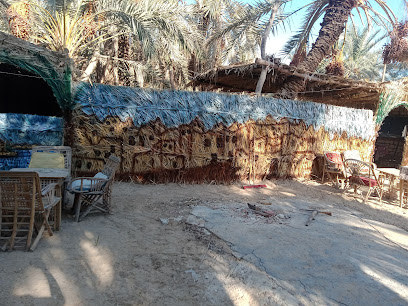
Al Bab Inshal Restaurant
Discover the flavors of Siwa Oasis at Al Bab Inshal Restaurant, where authentic Egyptian cuisine meets traditional architecture.
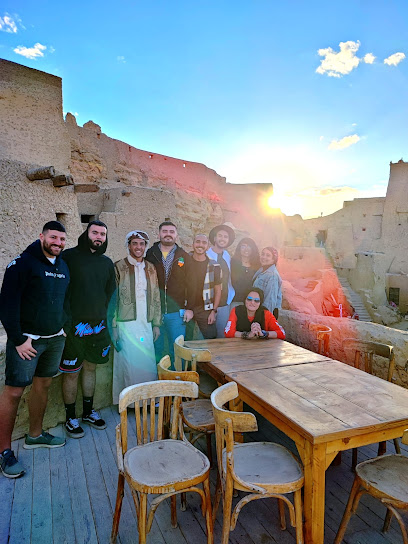
BEDOUIN - ROOF RESTAURENT .. مطعم بدو
Discover authentic Egyptian cuisine with breathtaking views at Bedouin Roof Restaurant in Siwa, a true culinary gem amidst the desert.
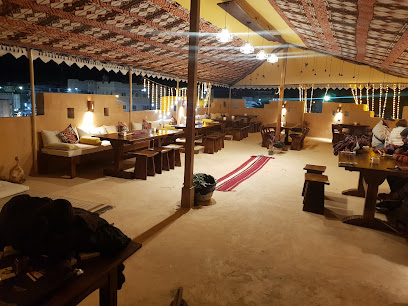
Kenooz Restaurant
Discover the essence of Egyptian cuisine at Kenooz Restaurant in Siwa, where tradition meets flavor in a vibrant atmosphere.
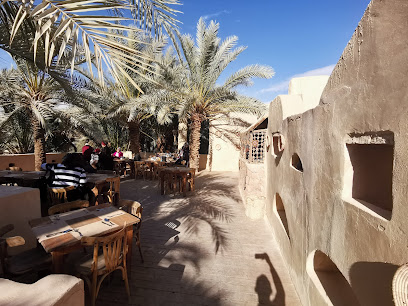
cafe Amazigh
Discover the authentic taste of Siwa at Café Amazigh, where local flavors meet warm hospitality in a charming oasis setting.
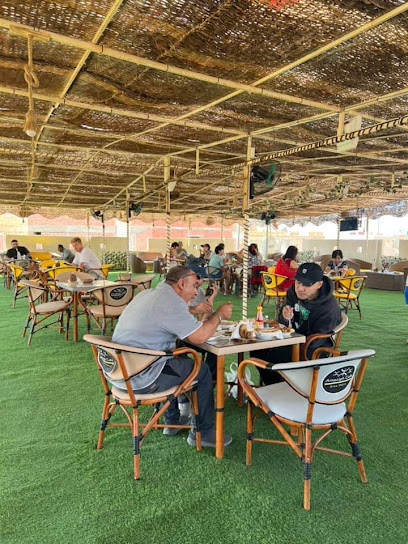
غروب الواحة | Ghorob Alwaha
Explore the authentic flavors of Egypt at Ghorob Alwaha, a delightful restaurant in the captivating Siwa Oasis.
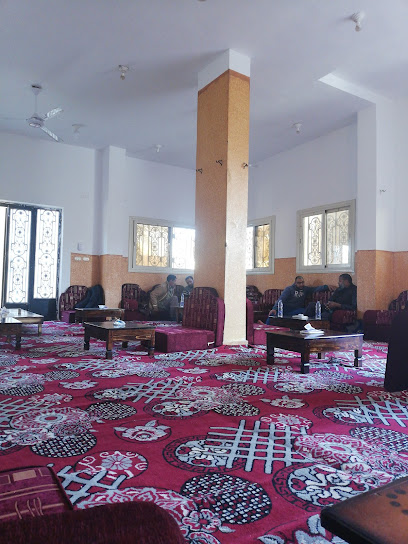
Travel experiences inspired by this city
Explore more travel diariesLocal Phrases
-
- Helloواحد
[wahed] - Goodbyeمع السلامة
[maa esslama] - Yesأيوه
[ayo] - Noلا
[la] - Please/You're welcomeعفوا
[afwan] - Thank youشكرا
[shokran] - Excuse me/Sorryآسف
[asif] - How are you?إزيك
[ezayak] - Fine. And you?تمام. وأنت؟
[tamam. want?] - Do you speak English?بتتكلم إنجليزي؟
[betetkalem inglizi] - I don't understandمش فاهم
[mash fahem]
- Helloواحد
-
- I'd like to see the menu, pleaseعايز أشوف القائمة من فضلك
[ayez ashuf el qaema men fadlak] - I don't eat meatأنا مش بآكل لحم
[ana mesh baakol lahm] - Cheers!في صحتك
[fi sahtak] - I would like to pay, pleaseعايز أدفع من فضلك
[ayez adfaa men fadlak]
- I'd like to see the menu, pleaseعايز أشوف القائمة من فضلك
-
- Help!نجدة!
[nagda!] - Go away!اروح!
[erouh!] - Call the Police!اتصل بالشرطة!
[etssel beshorta!] - Call a doctor!اتصل بطبيب!
[etssel bateeb!] - I'm lostضايع
[daye] - I'm illأنا مريض
[ana mareed]
- Help!نجدة!
-
- I'd like to buy...عايز أشتري...
[ayez ashtari...] - I'm just lookingأنا بس بشوف
[ana bas beshoof] - How much is it?بكام ده؟
[bekam da?] - That's too expensiveده غالي أوي
[da ghali awe] - Can you lower the price?تقدر تنزل السعر؟
[taqdir tenzel el saar?]
- I'd like to buy...عايز أشتري...
-
- What time is it?كام الوقت؟
[kam el waqt?] - It's one o'clockالواحدة
[alwahda] - Half past (10)نص عشرة
[nos ashera] - Morningصباح
[sabah] - Afternoonعصر
[asr] - Eveningمساء
[masa] - Yesterdayأمس
[ams] - Todayاليوم
[alyom] - Tomorrowغدا
[ghadan] - 1واحد
[wahed] - 2إثنين
[ithnein] - 3تلاتة
[talata] - 4أربعة
[arbaa] - 5خمسة
[khamsa] - 6ستة
[seta] - 7سبعة
[sabaa] - 8ثمانية
[thamania] - 9تسعة
[tisa] - 10عشرة
[ashara]
- What time is it?كام الوقت؟
-
- Where's a/the...?وين ال...
[wein el...] - What's the address?إيه العنوان؟
[eh el anwan?] - Can you show me (on the map)?تقدر توريني على الخريطة؟
[taqdir tureenya ala el khareeta?] - When's the next (bus)?إمتى الباص الجاي؟
[emta el bas el gay?] - A ticket (to ....)تذكرة (إلى ...)
[tazkara (ela ...)]
- Where's a/the...?وين ال...
History of Siwa Oasis
-
Siwa Oasis, nestled in the Western Desert of Egypt, has been a vital hub for over a millennia. The oasis's history dates back to ancient times, with evidence suggesting that it was inhabited as early as the Paleolithic era. The natural springs and fertile lands made it a sanctuary for early settlers, who established one of the most isolated and unique communities in Egypt.
-
Siwa Oasis gained significant prominence in antiquity due to the Temple of the Oracle of Amun. This oracle was one of the most revered in the ancient world, second only to the Oracle of Delphi in Greece. The temple became a pilgrimage site for many, including Alexander the Great, who visited in 331 BC to seek divine affirmation of his role as the son of Zeus and to be crowned as the pharaoh of Egypt.
-
One of the most notable historical events in Siwa's history is the visit of Alexander the Great. In 331 BC, during his conquest of Egypt, Alexander traveled to Siwa to consult the Oracle of Amun. According to historical records, the oracle confirmed his divine status, profoundly influencing his subsequent campaigns and the establishment of his empire.
-
Due to its remote location, Siwa Oasis remained relatively isolated from mainstream Egyptian and later Roman influences. This isolation allowed the Siwan culture to develop uniquely, preserving Berber languages and traditions. The local Siwi people developed distinctive customs, architecture, and social structures that are still evident today.
-
In the medieval period, Siwa became an important node in trans-Saharan trade routes. Caravans passed through the oasis, bringing goods like salt, dates, and olives from the desert to coastal cities and vice versa. This trade activity contributed to the economic and cultural richness of Siwa, integrating it into broader regional networks while maintaining its unique identity.
-
In the 19th and 20th centuries, Siwa Oasis began to attract the attention of archaeologists and historians. Excavations in the region uncovered significant artifacts, temples, and tombs that shed light on its ancient past. Modern developments have brought infrastructure improvements, but the oasis remains a place where history and tradition are deeply interwoven into daily life.
-
Today, Siwa Oasis is a fascinating blend of ancient history and modern tourism. It draws visitors from around the world who are eager to explore its historic sites, such as the Temple of the Oracle, the ancient fortress of Shali, and the Cleopatra’s Spring. Despite the influx of tourists, the Siwan people continue to uphold their cultural heritage, ensuring that the oasis remains a living testament to its rich history.
Siwa Oasis Essentials
-
Siwa Oasis is located in the Western Desert of Egypt, approximately 50 kilometers east of the Libyan border and some 560 kilometers from Cairo. The most common way to reach Siwa is by road. You can take a bus from Cairo, Alexandria, or Marsa Matruh. The journey from Cairo to Siwa by bus typically takes around 9 to 10 hours. Alternatively, you can hire a private car or taxi for a more comfortable and quicker trip. There are no direct flights to Siwa, but you can fly to Marsa Matruh and then take a bus or taxi to Siwa.
-
Once in Siwa Oasis, the most common forms of transportation are bicycles, motorbikes, and tuk-tuks (motorized rickshaws). Bicycles can be rented from various shops around the town. Tuk-tuks are a popular and affordable way to get around and can be hailed on the street. For those looking to explore the surrounding desert, 4x4 vehicles are available for hire, often with a local guide.
-
The official currency in Egypt is the Egyptian Pound (EGP). While some hotels and larger businesses in Siwa may accept credit cards, it is advisable to carry cash, particularly for smaller establishments and local markets. ATMs are available in Siwa, but it is wise to withdraw sufficient cash before arriving, as ATMs may occasionally run out of money or be out of service.
-
Siwa Oasis is generally a safe destination for tourists. However, it is important to take standard safety precautions. Avoid walking alone at night in unfamiliar areas and always be aware of your surroundings. There are no specific high-crime areas targeting tourists in Siwa, but it is always best to stay vigilant. Petty theft can occur, so keep an eye on your belongings in crowded places.
-
In case of emergency, dial 123 for medical assistance and 122 for police. Siwa has a local medical center that can handle minor health issues, but for more serious medical emergencies, you may need to be transported to a larger hospital in Marsa Matruh. It is recommended to have travel insurance that covers medical emergencies. Pharmacies are available in Siwa where you can purchase over-the-counter medications.
-
Fashion: Do dress modestly, as Siwa is a conservative area. Women should avoid wearing revealing clothing. Men should also dress modestly. Religion: Do respect local customs and traditions. Always ask for permission before taking photos of people, especially women. Public Transport: Do be respectful and give up your seat to elderly passengers. Do not eat or drink on public transport. Greetings: Do greet people with a handshake. A smile and a nod are also appreciated. Eating & Drinking: Do try local delicacies and accept food offerings graciously. Don’t refuse hospitality, as it is considered impolite.
-
To experience Siwa Oasis like a local, visit the local markets where you can buy fresh produce, handmade crafts, and traditional Siwan goods. Engage with locals, as they are often friendly and willing to share stories about the oasis's history and culture. Don't miss visiting the Shali Fortress, Cleopatra's Bath, and the Temple of the Oracle. For a unique experience, take a desert safari to the Great Sand Sea and spend a night under the stars. Tasting the locally produced dates and olive oil is a must.
Trending Landmark in Siwa Oasis
Nearby Cities to Siwa Oasis
-
Things To Do in Alexandria
-
Things To Do in Minya
-
Things To Do in Beni Suef
-
Things To Do in Tanta
-
Things To Do in Cairo
-
Things To Do in Zagazig
-
Things To Do in Asyut
-
Things To Do in Benghazi
-
Things To Do in Damietta
-
Things To Do in Ismailia
-
Things To Do in Sohag
-
Things To Do in Crete
-
Things To Do in Heraklion
-
Things To Do in Suez
-
Things To Do in Port Said

















